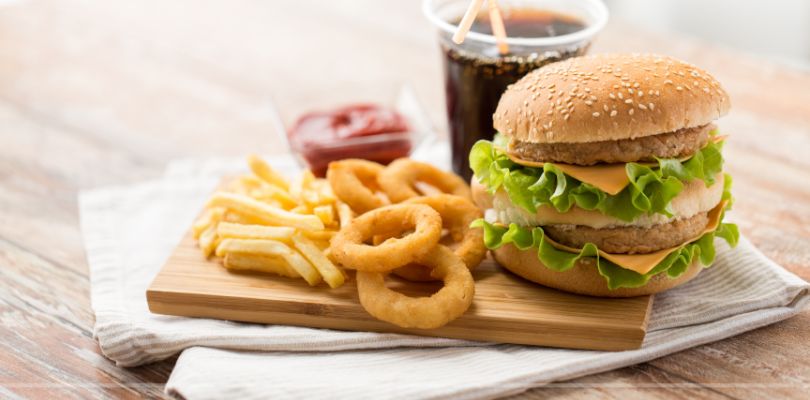Diet Dangers
Breast cancer is a serious illness that can affect many parts of your life, including what you eat. The foods you choose can have a big impact on your health, especially during and after treatment. Some foods can help your body, but others can make things harder. We’ll look at the worst foods to eat if you have breast cancer, offer some better food choices and discuss treatment options.
Worst Foods for Breast Cancer
Processed Meats
Processed meats like bacon, hot dogs and sausages are high in preservatives and have been linked to an increased risk of cancer. These meats often contain nitrates and other chemicals that can contribute to the growth of cancer cells.
Sugary Foods
Foods high in sugar, such as candies, cakes and sugary drinks, can cause spikes in blood sugar levels. High blood sugar can lead to inflammation and may promote cancer cell growth.
Fried Foods
Fried foods are often cooked in unhealthy oils and are high in trans fats. These fats can cause inflammation in the body and may make it harder for your body to fight cancer.
Red Meat
Consuming large amounts of red meat, especially when it’s cooked at high temperatures, can increase the risk of cancer. This includes steaks, burgers and other forms of beef, pork or lamb.
Alcohol
Alcohol is known to increase the risk of breast cancer. Even small amounts can be harmful, as alcohol can raise estrogen levels in the body, which may promote the growth of certain types of breast cancer.
Refined Carbohydrates
Foods made from white flour, like white bread, pasta and pastries, are quickly broken down into sugar in the body. This can lead to high blood sugar and increased insulin levels, which can fuel cancer growth.
High-Fat Dairy Products
Full-fat dairy products like whole milk, cheese and butter contain saturated fats that can promote inflammation and may increase the risk of cancer recurrence.
Fast Food
Fast food is often high in unhealthy fats, sugar and salt. Regularly eating fast food can lead to weight gain, which is a risk factor for breast cancer.
Best Foods for Breast Cancer
While avoiding harmful foods is important, incorporating the right foods into your diet can also support your health.
Fruits and Vegetables
Rich in vitamins, minerals and antioxidants, fruits and vegetables help fight cancer. Berries, leafy greens and cruciferous vegetables like broccoli are particularly beneficial.
Whole Grains
Foods like oatmeal, brown rice and whole-wheat bread provide fiber, which helps with digestion and may reduce the risk of cancer.
Lean Proteins
Chicken, turkey, fish and plant-based proteins like beans and lentils are healthier protein sources that support muscle maintenance and overall health.
Nuts and Seeds
Almonds, walnuts, flaxseeds and chia seeds are good sources of healthy fats and antioxidants, which can help reduce inflammation.
Healthy Fats
Incorporate sources of healthy fats, like olive oil, avocado and fatty fish (such as salmon), which can support heart health and reduce inflammation.
Treatment Options
Managing breast cancer often involves a combination of treatments:
Surgery
Surgery is often used to remove the tumor. This could be a lumpectomy (removing the tumor and some surrounding tissue) or a mastectomy (removing one or both breasts).
Radiation Therapy
Radiation uses high-energy waves to target and kill cancer cells. It’s often used after surgery to eliminate any remaining cancer cells.
Chemotherapy
Chemotherapy involves using drugs to kill cancer cells throughout the body. It’s often used to treat breast cancer that has spread or to shrink tumors before surgery.
Hormone Therapy
Some breast cancers are fueled by hormones like estrogen. Hormone therapy works by blocking the body’s ability to produce these hormones or by stopping their effects on cancer cells.
Targeted Therapy
Targeted therapies are newer treatments that target specific characteristics of cancer cells, such as a protein that allows the cancer cells to grow rapidly.
Breast Cancer Diet Mistakes
What you eat and drink can have a big impact on managing breast cancer. By avoiding certain foods and choosing healthier options, you can support your body during treatment and recovery. Additionally, working closely with your healthcare team to explore the best treatment options is crucial to your overall health and well-being.
